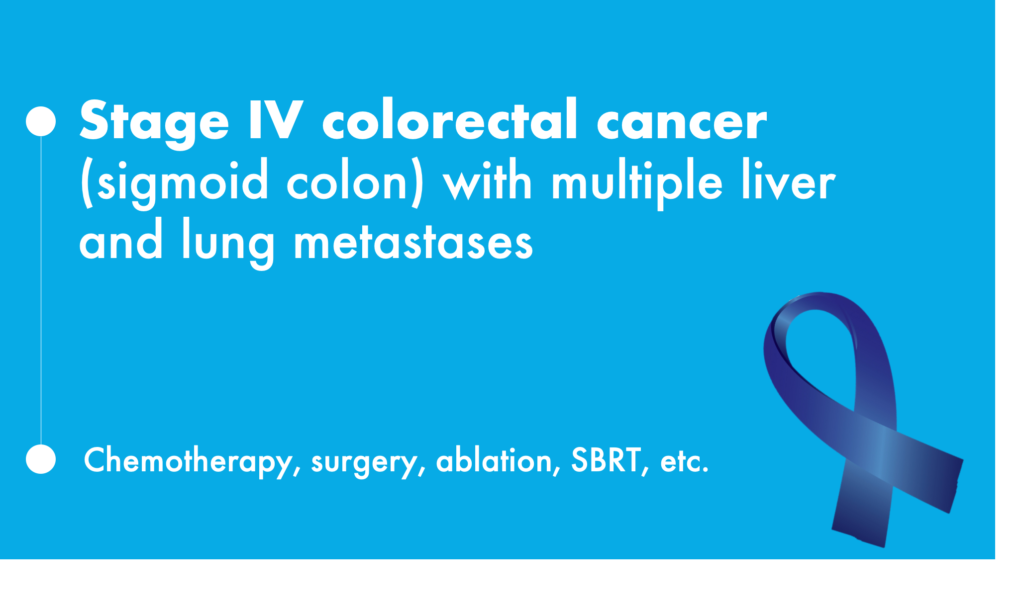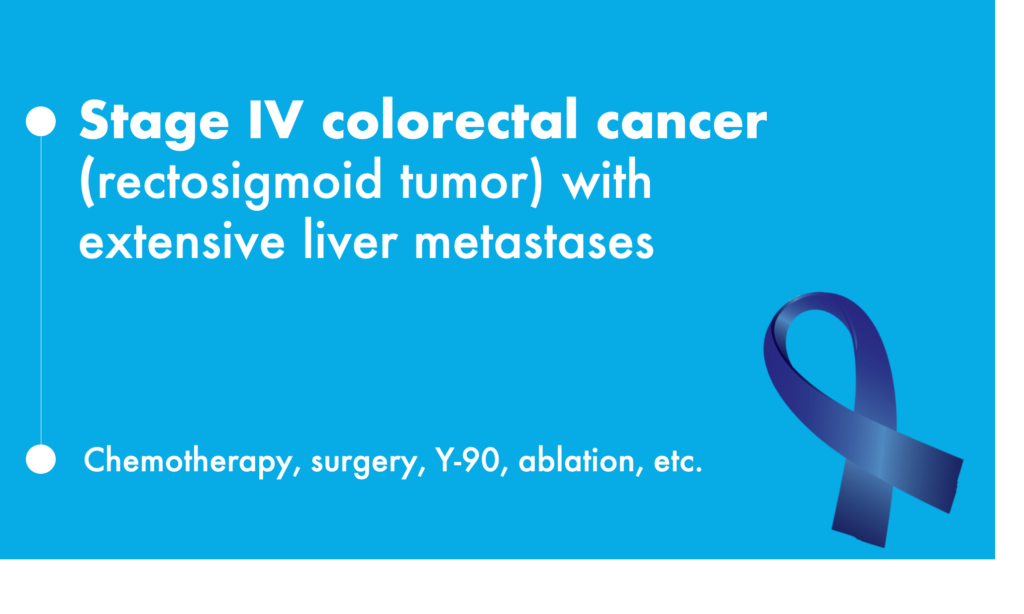Journey of Resilience
Turning Point in the Fight Against Liver Metastases: How Immunotherapy Helped a Man with Advanced Rectal Cancer
Remarkable Response to Immunotherapy for Metastatic Rectal Cancer
A 49-year-old man was first diagnosed with rectal cancer in early 2018 and underwent radical surgery for stage T2N0M0 disease. Despite initial success, routine follow-up in July 2019 revealed liver metastases. Imaging showed two liver lesions and a compressed bile duct. A biopsy confirmed moderately differentiated adenocarcinoma of colorectal origin. Genetic testing revealed microsatellite instability-low (MSI-L), low tumor mutation burden (TMB-L), and no PD-L1 expression—markers often linked to limited immunotherapy response.
He began treatment with six cycles of CapeOX plus bevacizumab (a targeted therapy), followed by nine cycles of capecitabine plus bevacizumab as maintenance. However, by December 2020, the cancer progressed. At this point, he started FOLFIRI combined with cetuximab, and his liver metastases were also targeted with stereotactic body radiation therapy (SBRT).
While his tumor markers improved and some lesions shrank, new tumors continued to appear in the liver. A third-line therapy using Regorafenib and SBRT for new liver spots in May and September 2021 still could not stop disease progression. His CA199 levels soared to over 11,000 u/ml, a strong indicator of disease burden.
On September 4, 2021, after exhausting standard options, the patient received his first dose of the immunotherapy drug Tislelizumab (anti-PD-1). Within three cycles, CT scans showed major tumor shrinkage: some liver lesions shrank while others disappeared completely. His CA199 level dropped dramatically—from over 11,000 to just 333 u/ml.
Although the treatment response was classified as a partial response (PR), this case highlights how immunotherapy, even in patients with unfavorable genetic markers, can still offer meaningful outcomes when other options have failed.
Diagnosis
Rectal cancer with liver metastasis
Biomarker profile: MSI-L, PD-L1 negative, TMB-L
Treatment
Surgery, chemotherapy, radiation, targeted therapy, and finally anti-PD-1 immunotherapy (Tislelizumab)
Outcome
Significant tumor reduction and biomarker improvement after immunotherapy, despite prior treatment failure
Source: Liu, S., Zhang, Y., Lin, Y., Wang, P., & Pan, Y. (2022). Case report: The MSI-L/p-MMR metastatic rectal cancer patient who failed systemic therapy responds to anti-PD-1 immunotherapy after stereotactic body radiation-therapy. Frontiers in immunology, 13, 981527.
.


